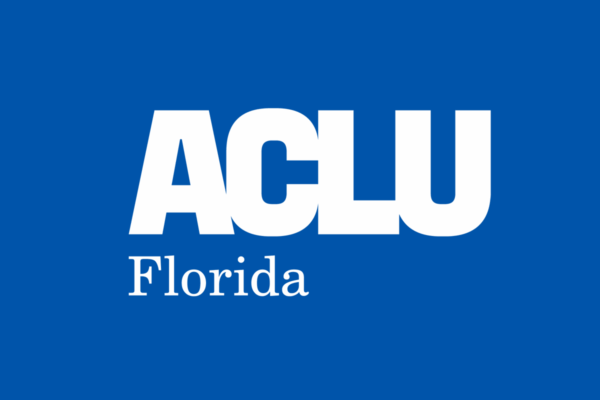In response to an amicus brief filed by legal organizations, the Florida Attorney General’s Office reversed the State’s initial position and conceded that the ordinance was a violation of the First Amendment
Lakeland, FL – Florida’s Second District Court of Appeal ruled yesterday that a Fort Myers ordinance criminalizing requests for charity is unconstitutional as applied. The court ruled that the State failed to identify any compelling government interests that would justify the ordinance’s restriction on free speech. The decision overturned the trial court’s decision in the 2019 case of David Joseph Watrous, who was arrested for violating a Fort Myers municipal ordinance that prohibits people from asking for charity on a public street. The ACLU of Florida, Southern Legal Counsel, and Florida Rural Legal Services were represented by Akerman LLP and filed an amicus brief supporting his appeal.
The groups argued that the Fort Myers ordinance, which restricts solicitation of charitable assistance, is a content-based restriction on speech and a violation of the First Amendment. Initially, the State maintained that the ordinance was constitutional. However, Attorney General Ashley Moody’s office later amended the initial appellate brief to concede the ordinance is an unconstitutional infringement on the First Amendment right to speech.
“We are pleased that the State of Florida correctly recognized that individuals have the First Amendment right to request assistance and conceded that the Fort Myers ordinance was unconstitutional,” said Jodi Siegel, executive director for Southern Legal Counsel. “The court’s ruling and the State’s concession should mark the beginning of the end of the practice of criminalizing the act of people simply asking for charity in Florida. The right to free speech protects us all, and that includes the right to ask others for help.”
Today’s ruling is just one of many in which courts have recognized that asking for charity is protected speech under the First Amendment. In its opinion, the court confirmed that ordinances restricting freedom of speech in this manner are “presumptively unconstitutional.” It prompts a clear incentive for cities to repeal any ordinances punishing individuals for soliciting help. Similar ordinances have been struck down by courts throughout Florida and throughout the country. Currently, there are active federal lawsuits in Florida challenging ordinances in Ocala, Fort Lauderdale, and Pompano Beach. An order granting a motion for a preliminary injunction was granted on behalf of the Plaintiffs, represented by the Florida Justice Institute, in the Fort Lauderdale challenge on June 23.
“Cities in Florida that are either considering or have already passed similar ordinances are now on notice that in addition to multiple state and federal courts, the State of Florida has also now recognized that individuals have the right to ask for charity. Any city that currently has a similar ordinance would be wise to repeal it immediately. Ordinances that prohibit charitable requests directly impact the ability of individuals, particularly those experiencing homelessness or low-income individuals, to exercise their First Amendment rights,” said Jacqueline Azis, staff attorney for the ACLU of Florida. “The government should not be in the business of infringing on the First Amendment rights of individuals by telling people what they can and cannot discuss in public, and it should not be punishing anyone for requesting charitable contributions from their community.”
Despite court decisions like this one, cities and counties continue to enact or enforce similar ordinances to punish people engaged in constitutionally protected expression of asking for charity. Since the onset of the COVID-19 pandemic, cities across the state have adopted similar ordinances including Port Orange, Delray Beach, and the City of West Palm Beach. The City of Miami Beach adopted a restriction on asking for charity in its COVID-19 emergency order in 2020, but removed it after receiving a letter from advocacy groups demanding its repeal.
"Akerman is proud to stand alongside the American Civil Liberties Union of Florida, Southern Legal Counsel, and Florida Rural Legal Services to provide pro bono assistance in advocating on behalf of people experiencing homelessness," said Gina Del Chiaro, partner and director of Pro Bono Initiatives.
“We are honored to have been a part of this effort with our community partners and grateful for all of their hard work. This is a great victory for our clients who are forced to struggle with homelessness and, as they work to pick their lives back up, can’t afford to be viewed as criminals merely because they are poor and unable to secure housing,” said Pedro Lopes, staff attorney for Florida Rural Legal Services.
The court decision can be found here: https://edca.2dca.org/eOrder.aspx?id=182764-169080-4607492-267309
Stay Informed
Sign up to be the first to hear about how to take action.
By completing this form, I agree to receive occasional emails per the terms of the ACLU’s privacy statement.
By completing this form, I agree to receive occasional emails per the terms of the ACLU’s privacy statement.

